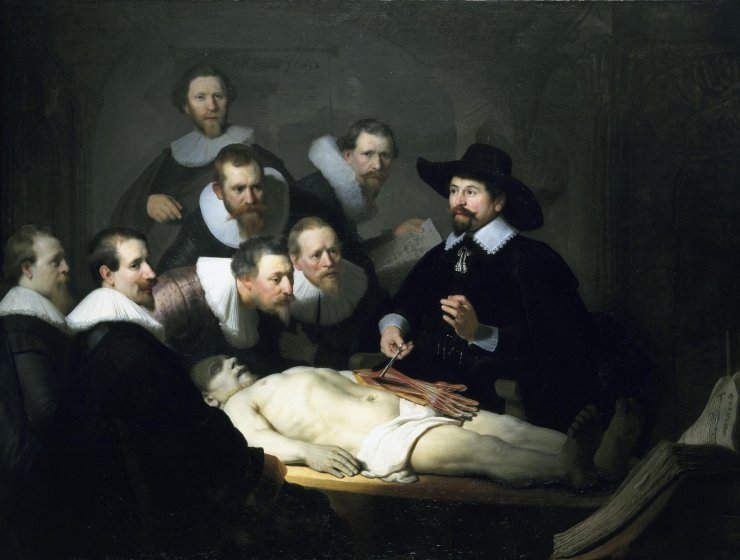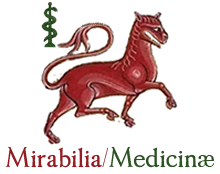
-Index-
Editorial: Medical Education
Hélio ANGOTTI NETO
Original title: Editorial: Educação Médica
This edition of Mirabilia Medicinae brings articles about Medical Education and Bioethics, including several perspectives.
Introduction to Medicine didactics of the Middle-Ages: analysis of medical treatises of the Iberian Peninsula
Josué VILLA PRIETO
Original title: Introducción a la didáctica de la Medicina en la Edad Media: análisis de los tratados médicos de la Península Ibérica
The Medical treatises produced in the Iberian Peninsula express Galen and Hippocrates traditional knowledge almost without introducing something new until the Late Middle Ages. This study proposes an interpretative synthesis about those new elements in a significant period of the genesis of Medicine as a modern science: how intellectuals define their attributions, how is inserted its teaching at Iberian studia generalia, who compose textbooks and materials for its study, how are organized these same treatises and, of course, which contents do they have.
The Pedagogy of Clinical Empathy: Formation of the Physician
Nicholas J. BELLACICCO, James A. MARCUM
Original title: The Pedagogy of Clinical Empathy: Formation of the Physician
Clinical empathy is a lively topic of discussion in the contemporary medical literature. Research indicates that empathetic physicians receive higher patient satisfaction ratings, as well as improved patient health outcomes, compared to non-empathetic clinicians. Consequently, clinical empathy appears to be instrumental in providing quality patient care. If empathy is essential for improving healthcare outcomes, should not medical students learn to be more empathetic? To address this question, we first explore the distinction between clinical sympathy and empathy. Then, two essays from the medical literature are used to compare the empathetic with the non-empathetic physician. Next, we examine the pedagogical issues involved in teaching empathy to premedical and medical students, as well as to residents. Finally, we conclude by discussing the imperative for training clinicians to deliver quality empathetic healthcare.
Medical student's evaluation about use of eponyms in medical practice
Fleury Marinho da SILVA, Rodolfo Costa SYLVESTRE, José Guilherme Pinheiro PIRES
Original title: Avaliação dos estudantes de medicina sobre o uso de epônimos na prática médica
Eponym is a terminology created from a person’s name for naming syndromes, signs or diseases. Several authors argue against the use of eponyms, yet some support their use. Our objective is to evaluate the opinion of medical students about the use of eponyms in medical practice. A qualitative research was done with students from 3rd to 5th year of a southeastern Brazilian medical school, through the application of a questionnaire, interview recording, and transcript of the answers. The qualitative analysis was done using the evocations of the subjects under study. The majority of the students was against the use of these nomenclatures, both in medical practice and in basic training. The students argued the difficulty for memorizing the names and obstacles in communication when using the eponyms. However, they also remember that the use of eponyms is frequently a tribute to the first physicians in history and its use is already common in the academic and professional environments. A major debate among medical educational institutions and students should be considered for probable adjustments of the difficulties that students have faced in their undergraduate period concerning the use of eponyms.
Two medical rationalities in the same teaching space: memories of acupuncture in Florianopolis
Renata Palandri SIGOLO
Original title: Duas medicinas em um espaço de ensino: memórias sobre a acupuntura em Florianópolis
How was it possible to create an acupuncture ambulatory within the UFSC University Hospital, in the years 1990's? This is the main topic in the present text, which seeks to understand, through the introduction of acupuncture in a teaching academic space, the meetings, disputes and negotiations between two medical rationalities which follow rather different paradigms. In that purpose, it uses interviews realized with acupuncturists who acted directly or indirectly for the insertion of acupuncture into the academic medical universe, taking them as memory speeches.
Law 12.871/13 – Medical Education in Brazil. Is the Medical School Ready?
Rosana ALVES, Filomena Eurídice Carvalho de ALENCAR, Cláudia Vasconcellos MIDIÃO, Gleison VALLE, Paulo Victor Ferreira MAI
Original title: Lei nº 12.871/13 – da Formação Médica no Brasil. A Escola Médica Está Preparada?
Report from the I Regional Forum of Medical Education CRM-ES and ABEM RJ/ES, Vitória, June 19, 2015, including administrators, teachers, students and medical education authorities.
Beginning and perspectives of Bioethics in Brazil and in Portugal
Amanda Guedes dos REIS, Carlos Manuel Costa GOMES, Marta SAUTHIER, André Marcelo Machado SOARES
Original title: Origem e perspectivas da Bioética no Brasil e em Portugal
In this article, result of an academic partnership between the Anna Nery School of Nursing from the Federal University of Rio de Janeiro and the Bioethics Institute of the Catholic University of Portugal of the Porto, the beginning of Bioethics is addressed and its impact in Brazil and Portugal countries is presented. The Brazilian and the Portuguese bioethical thoughts are discussed and a prospecting of the future of Bioethics journey in both countries is made.
Phosphoethanolamine ("cancer pill") and its scientific, bioethical, legal, and political conflicts of interest
Márcia de Cássia CASSIMIRO, André Marcelo Machado SOARES, Marcelle Mourelle Perez DIÓS-BORGES, Carlos Henrique DEBENEDITO SILVA, Antonio Abílio Pereira de SANTA ROSA
Original title: Fosfoetanolamina (“pílula do câncer”) e os conflitos de interesse científicos, bioéticos, legais e políticos
The debate regarding synthetic phosphoethanolamine in Brazil is not entirely scientific. In the midst of an intense academic discussion about its biochemical aspects and clinical research issues, there is another one taking place on the field of Justice about the decisions that have been made leading to its release to general public. Ideally the arguments should rely mainly on ethical criteria, necessary for a large-scale production of the results of any scientific experiment. However, this episode disclosed that this debate is not only about correct application of ethical principia regulating Brazilian scientific research, for these rules have been currently in use and yet, they were not enough to prevent fabrication and distribution of phosphoethanolamine. Government agencies should pay strong attention to this fact and become truly and responsibly committed to stimulate research on new drugs, provided that it can be carried out following applicable ethical principia. Benefits of scientific research are supposed to level not only the financial expenditures but also its social costs, required for its development. It is mandatory to fill the gap between scientific and social responsibilities.
Letter: Academic visit by Professor Charlotte Roberts, Department of Archeology, Durham University – UK, to the Universidade Federal do Espírito Santo, Vitória, ES-Brazil (hosted by Dr. Patricia Deps from August 16th to 23rd 2015)
Charlotte ROBERTS
Original title: Correspondência: Visita acadêmica da Professora Charlotte Roberts, do Departamento de Arqueologia da Universidade de Durham – Reino Unido, à Universidade Federal do Espírito Santo, em Vitória, Espírito Santo, Brasil (anfitriã: Patrícia Deps, de 16 a 23 de
Letter: Leprosy and Paleopathology – exchange of experience
Patrícia DEPS
Original title: Correspondência: Lepra e Paleopatologia – intercâmbio de experiências


















































































